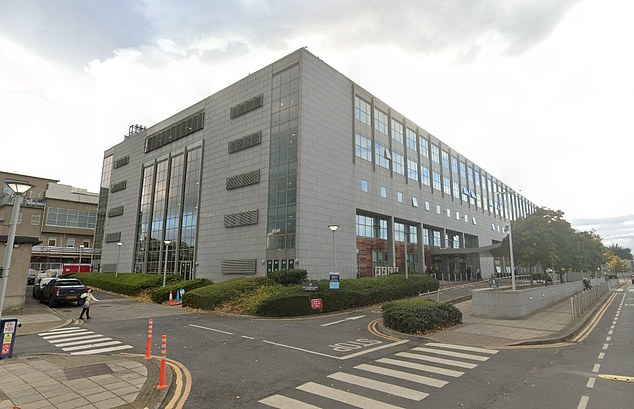A father-of-three died after drinking too much water, a court has heard.
Sean O’Donnell, 59, from Dublin, was killed by fatal ‘water intoxication’ shortly after being encouraged to drink lots of fluid following a routine procedure in hospital.
The condition is known medically as hyponatremia and is the same illness that medics suspect killed martial arts legend Bruce Lee.
While drinking enough water is essential for good health, drinking too much too quickly can lead to a potentially deadly drop in sodium levels in the body.
Sodium is an electrolyte that helps regulate the amount of water in tissue.
If levels get too low, water can begin to build-up in and around the body’s cells, causing them to swell in size.
This can be particularly dangerous in the brain, with the organ unable to expand safely due to the tight confines of the skull.
Experts warn that drinking 1.4 litres of water, around six cups or just shy of four pints, in an hour could be enough to trigger the condition.

Sean O’Donnell died suddenly after being ‘encouraged and advised’ to drink lots of water following a routine procedure at St. Vincent’s University Hospital in Dublin back in January 2020
Hyponatremia kills about one in four patients that suffer it, according to some studies.
Mr O’Donnell was booked in for a routine procedure at St. Vincent’s University Hospital in Dublin back in January 2020, a Dublin courtroom heard.
The unspecified operation reportedly went exactly to plan and afterwards Mr O’Donnell was encouraged to drink plenty of water.
However, his water intake wasn’t monitored by staff, and he died at 7pm that same day.
The court heard how he suffered brain swelling from the excess fluid intake which then led to a seizure, cardiac arrest and eventual death.
St Vincent’s hospital admitted a breach of duty of care and his family have been paid €35,000 (£29,500) for mental distress, the Mirror reported.
Exactly how much water can trigger hyponatremia varies, depending on the individual.
The Centers for Disease Control and Prevention in the US advises getting through no more than 1.4 litres in an hour.

Drinking two litres of water per day — around eight cups — is vital for keeping the body hydrated (left). But rapidly getting through this amount can be deadly, experts warn. Centers for Disease Control and Prevention bosses advise no more than 1.4 litres per hour, around six cups (right)
Critically, this advice applies for all fluids, not just water specifically.
Hyponatremia can also be triggered by consuming normal amounts of water in some, vulnerable patients.
Hospitalisations have been reported in those who’ve drunk seven or eight litres of water during the course of a day — the equivalent to one litre every three hours.
Those who suffer kidney failure are especially at risk as their body cannot expel excess fluid as fast as it is being drunk.
Cases of water intoxication have been reported among marathon runners like David Rogers, a 22-year-old fitness instructor from Milton Keynes, who died after consuming too much water during the 2007 London Marathon.
Other cases include that of mother-of-two Ashley Summers, from Indiana, who, in 2003, died after drinking two litres of water in just 20 minutes.
Researchers also believe Kung fu expert Bruce Lee could have died from drinking too much water. He passed away aged 32 in the summer of 1973 while in Hong Kong.
The martial arts supremo and Hollywood star died from brain swelling, which doctors at the time blamed on painkillers.

Almost 50 years after he passed away, doctors have now claimed that Kung fu expert Bruce Lee’s mysterious death could have been caused by drinking too much water

Ashley Summers, 35, was a daycare worker and mother of two. She died from water intoxication or hyponatremia
But more recent research has suggested his excessive fluid intake may have been to blame.
The NHS recommends people aim to drink six to eight cups of liquid per day, roughly about two litres, so that their urine is a clear pale yellow colour.
Symptoms of hyponatremia include nausea or vomiting, fatigue, muscle weakness or cramps, restlessness or a bad temper, headache or confusion and seizures.
Athletes and patients taking certain medications that increase thirst, like antidepressants, are considered to be at increased risk of hyponatremia.
Patients are typically treated in hospital with an IV drip containing sodium solution or medication.



